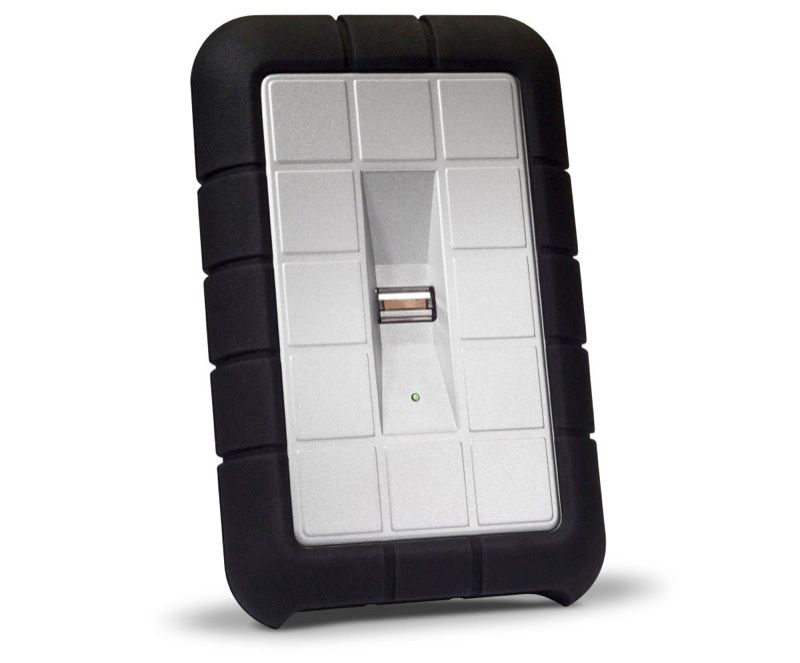Lacie continues its range of “ruggedised” portable storage/media access devices with the new Rugged Safe, a similarly styled device with one immediately redeeming feature - the presence of a biometric authentication module. Or, to you and me, a fingerprint scanner.
Our quick take
Lacie’s Rugged Safe ticks all the most important boxes and while there are some compromises to be made in terms of transfer speeds and a price premium, there’s little to criticise in the way it goes about its job. With some useful and intuitive software provided to take the hassle out of backup and user administration, this is a solid and reliable solution that should offer peace of mind to those who require it.

LaCie Rugged Safe - 4.0 / 5
| FOR | AGAINST |
|---|---|
|
|
Most will have probably seen these sorts of devices before; their main purpose being to add an extra degree of security and/or convenience to drives that may be used with shared computers or in public environments, where simply unplugging and carrying it around isn’t practical.
Lacie employs a number of layers of security on top of the headline fingerprint scanner though, including automatic 128-bit AES encryption of any data that is copied to the drive and an additional software encryption via the supplied Genie Backup Assistant. On the outside the protection offered by the rubber “sleeve” the unit is encased in is complemented by anti-shock pads around the drive itself, allowing it to cope with a realistic level of punishment without compromising your data.
Though installation of the Genie Backup software is optional, when the drive is plugged in for the first time it’s necessary to configure the Safe Manager software that comes pre-installed to recognise at least one fingerprint by creating a registered user and password that, by default, then becomes the administrator. Up to ten fingerprints can be stored in the Rugged Safe’s secure database, and the software makes it fast and easy to set up whatever combination of access you wish. It’s recommended that you register more than one fingerprint for the main administrator, for example, in case a digit is injured and/or bandaged so as to prevent access, and to add more than one administrator in case someone isn’t available.
Once this process is complete, a small LED above the fingerprint reader shows “red” for blocked access, “green” for access granted and “orange” as it’s processing a request. This works very well, and quickly (and correctly) granted or denied access in around a second following a “swipe” every time.
Of course automatic encryption does incur some overheads, and in our tests the Rugged Safe achieved transfer speeds of around half what you’d expect from a typical USB 2.0 device. It’s hard to be critical here though, and those who desire this level of security should also expect some compromises along the way.
Genie Backup Assistant is a tidy and useful piece of software for those who don’t already have a fast and easy way to create and schedule backups. As mentioned, additional 128-bit AES encryption is available for the more paranoid traveller, as well as compression, network support and the ability to select from a range of file categories for backup, including email and system settings.
Though the Rugged Safe is a fair bit more expensive than you’d typically want to pay for a 500GB hard drive, there’s obviously a premium involved in the benefit of this sort of technology. While £159.99 does seem a bit steep, we could find little at fault with the actual process of encryption and access and not being military-grade hackers, little to fault about the integrity of the security. For those who would require this level of protection for data, the Rugged Safe does its job very well.
To recap
Despite the high price, Lacie has produced a solid and well-designed product in the Rugged Safe, which is sure to keep sensitive data out of harm’s way
